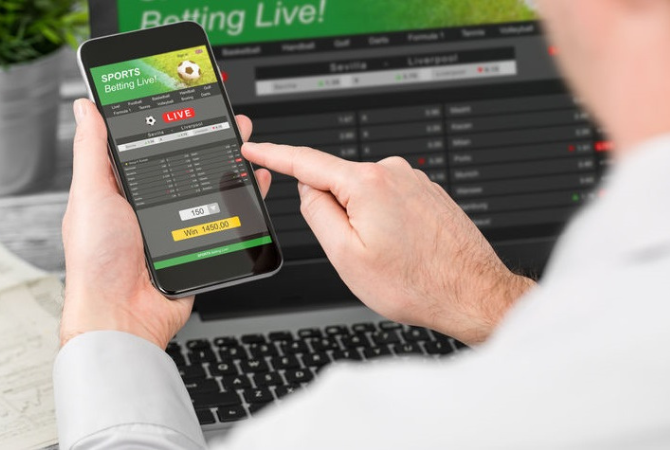Debate surrounding gambling advertising has raged for years but demands for tough action seem to be growing “louder”, one betting platform boss has admitted.
A parliamentary inquiry into online betting and its impacts on those experiencing gambling harm is in the process of finalising its report and list of recommendations, after receiving 150 submissions, including “powerful” examples of harm.

“It is absolutely clear that it is not just community members who are concerned about the proliferation of sports betting advertisements and the increasing engagement of young people in sports betting,” Labor MP Peta Murphy, chair of the committee on social policy and legal affairs, said.
Online gambling is a $50 billion industry and competition is fierce, as a recent ad from the app Dabble showed.
ADVERTISEMENT
One of its features, allowing users of the social community-focused app to copy their mates’ bets, was ‘copied’ by major competitor Sportsbet. Dabble shot back with a cheeky copy of Sportsbet’s ad.
“We’ve set ourselves as a little challenger brand,” Dabble GM of brand and consumer marketing David Galbally said.
“When we launched, we felt like there were a couple of personality brands in the market but maybe aimed at a different target market. There was an opportunity for a more modern, progressive brand.
“With that comes a bit of an onus to challenge the sector with our product. We wanted that to go into the brand.”
Marketing in general is a challenging prospect for a brand that can be divisive and is heavily regulated, Galbally said.
The outlook at present is an uncertain one.
“We understand in-depth reviews come from time-to-time. It definitely is a little bit louder this time in regards to community sentiment and the possibility of change.
“I think it’s a little uncertain what’s truly going to transpire. It’s too early to speculate.”
There are growing calls for tougher restrictions on sports-betting advertising in particular, with some opponents pushing for a total ban.
The value of sports betting gambling ads hit almost $300 million in 2021.
A report earlier this year by the Victorian Responsible Gambling Foundation described the concept of betting on sports as “normalised” among young people.
Previous restrictions on promoting odds throughout sports broadcast and in close proximities to broadcast were a good thing, Galbally said.
“We support that. We also support the reduction of inducement marketing.”
On how the sector might respond to broader restrictions or even a total ban on advertising, he was unwilling to comment.
“It’s just too early to speculate,” he repeated.
“We exist in a digital market only. We don’t buy in all sorts of channels. We occupy ourselves with our own challenges and our own day-to-day.
“Our approach is more in line with the belief that our customers should moderate play. We have a young customer base, and we have a responsibility to that base.
“We’re more than happy to play in our product space. Most of our messaging is related to experiential functionality rather than promotions anyway.”